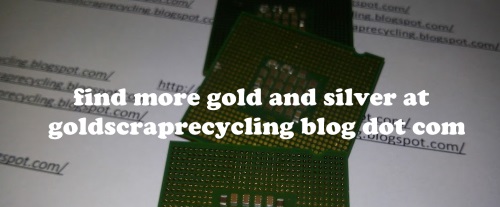Scrap Gold Buying Rip Off
Many jewelers & dealers advertising to buy scrap gold jewelry in the UK are ripping people off with low prices & misleading claims.
We contribute our advice and expert opinion.
With 9 Carat Gold Worth £7 Per Gram Many Jewelers are Paying £4 Per Gram or Less
So if your item is worth £100, you are only getting paid £56 for it, and the buyer is making £44, or a 79% mark-up.
Some dealers pay much less, and therefore make even higher and more obscene profits.
We heard of one paying only £1 per gram (approximately)!
The £1 Billion Scrap Gold Buying Rip Off
The world supply of scrap gold for recycling was 586 tone of fine gold in the first quarter of 2009. This equates to about £44 billion at current prices.
It is difficult to know what proportion of this came from the UK, but even if was as little as 2% to 3%, this would work out at over £2 billion in the UK.
From our brief research, many small traders are paying about half the true value for scrap gold, meaning that UK owners of gold scrap are being ripped-off by £1 billion per annum.
Our Advice
Our advice to owners of scrap gold and second-hand jewelry is to shop around, but more importantly find out the weight (most people use grams), of your gold, know what carat it is, and make sure you get a sensible price for it.
Remember there are 31.1035 grams per troy ounce.
Divide the troy ounce price by 31.1035 to convert to a price per gram.
For gold carat, multiply by the cartages and divide by 24, so for example £ x 9 /24 = intrinsic value of 9 carat gold.
If the fineness is expressed as a percentage or millesimally (9ct =37.5% or .375) the calculation is even easier (£ x .375).
Recycling Costs
Nobody in their right mind is going to pay you the full intrinsic value of scrap gold, because there are refining costs, and other losses and expenses to deduct. For example hallmarks are often faked on gold-plated base metal jewelry, so scrap needs to be checked, and often acid-tested.
There are also other losses. Dirt and contamination often account for about 1% loss. American jewelry manufacturers are legally allowed a half carat tolerance, which they usually take advantage of, so that 10 karat gold is often only 9.5 carats (that is a 5% loss on its own).
The scrap buyer expects to make a profit, so if you have scrap gold to sell, you should hope to get about 90% of its intrinsic value.
For smaller amounts you should expect about 80% to 85%, while for large and regular quantities, of clean well-sorted scrap, a trade seller might achieve around 95%.
Our research shows that many jewelers and market traders are only paying between 15% and 60% of the true value.
Typical Scrap Gold Categories
• Nine Carat (9ct) Hallmarked Gold
• Nine Carat (9ct) Unhallmarked Gold
• Fourteen Carat (14ct) Hallmarked Gold
• Fourteen Carat (14ct) Unhallmarked Gold
• Fifteen Carat (15ct) Hallmarked Gold
• Fifteen Carat (15ct) Unhallmarked Gold
• Eighteen Carat (18ct) Hallmarked Gold
• Eighteen Carat (18ct) Unhallmarked Gold
• Twenty Two Carat (22ct) Hallmarked Gold
• Twenty Two Carat (22ct) Unhallmarked Gold
More about how to sell gold





